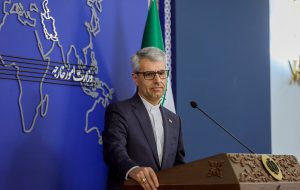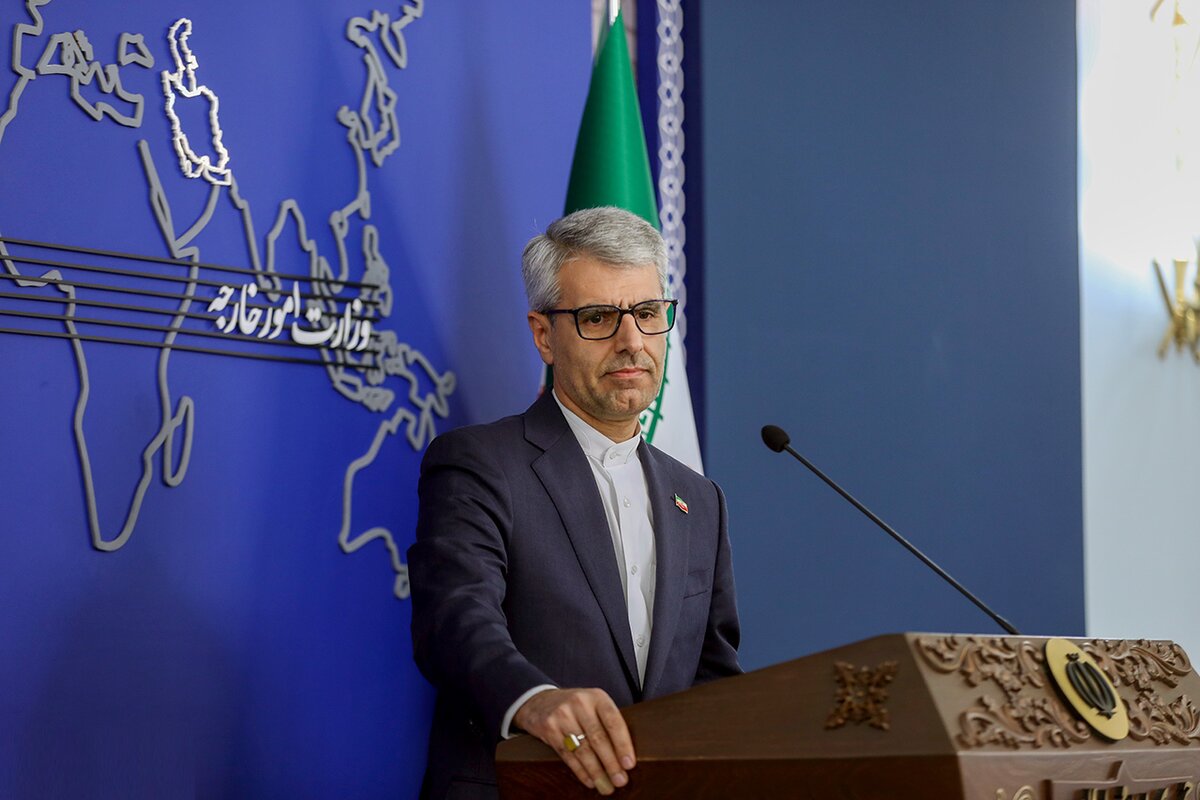‘No permission needed to safeguard our security’: Iran’s foreign ministry
TEHRAN – Iran’s Foreign Ministry spokesperson Esmail Baqaei asserted on Monday that Iran will defend its national interests and territorial security without seeking external approval. “The right to defense is an inherent right,” Baqaei stated at a press conference, emphasizing Tehran’s resolve to respond to the Israeli regime’s attack against Iranian territory on October 26.


TEHRAN – Iran’s Foreign Ministry spokesperson Esmail Baqaei asserted on Monday that Iran will defend its national interests and territorial security without seeking external approval.
“The right to defense is an inherent right,” Baqaei stated at a press conference, emphasizing Tehran’s resolve to respond to the Israeli regime’s attack against Iranian territory on October 26.
Engagements with Europe
Baqaei also addressed recent diplomatic engagements in Geneva with the E3 — comprising the UK, France, and Germany.
He clarified that discussions extended beyond nuclear issues, stating, “We raised our various concerns with the European side.”
The spokesperson said that the meeting was intended for dialogue rather than negotiation, reflecting the natural diplomatic relations Iran maintains with these countries, particularly in light of regional developments.
Palestinian Solution and Gaza
Highlighting Iran’s stance on the Palestinian conflict, Baqaei advocated for an independent referendum allowing all Palestinian citizens to decide their future.
Regarding the humanitarian crisis in Gaza, he expressed concern over the worsening conditions with the onset of winter.
“The continuation of famine and the starvation of the people of Gaza is very painful, and it is necessary to stop these crimes as soon as possible,” he remarked.
Nuclear Policy
In response to queries about a potential change in Iran’s nuclear doctrine, Baqaei reiterated that the country’s nuclear policy remains unchanged and peaceful.
Recent comments by Foreign Minister Abbas Araghchi were described as warnings against unconstructive Western approaches. Araghchi was quoted by British media last month as saying that more and more people within Iran are questioning the benefits of dialogue with the West in the face of Western states’ continuous shunning of previous agreements.
Baqaei criticized the U.S. for its disruptive influence on Iran’s interactions with the International Atomic Energy Agency (IAEA), emphasizing that Iran’s nuclear program is guided by a religious decree from the Leader of the Islamic Revolution Ayatollah Seyyed Ali Khamenei and national security concerns.
Escalating terrorism in Syria
Addressing the situation in Syria, Baqaei highlighted the regional consequences of the country’s instability, cautioning that insecurity in the Arab country will not stay limited to its borders, as terrorism will affect other regions if left unaddressed.
He also pointed to collaborative efforts by Iran, Turkey, and Russia to manage tensions.
Baqaei condemned the U.S. military presence as a violation that exacerbates terrorism.
Refuting claims that groups like Tahrir al-Sham (HTS) have become less violent, he asserted they have “seasoned trainers who taught them the importance of the media,” although their violent nature remains unchanged.
In response to a Tehran Times correspondent’s inquiry about the origins of these trainers, Baqaei did not specify but hinted at possible involvement from the Israeli regime and the U.S.
